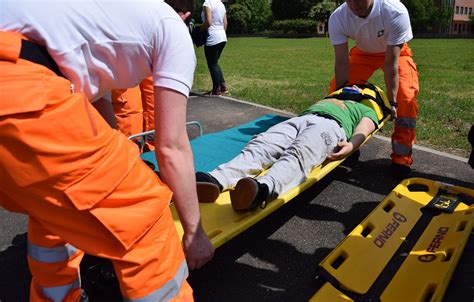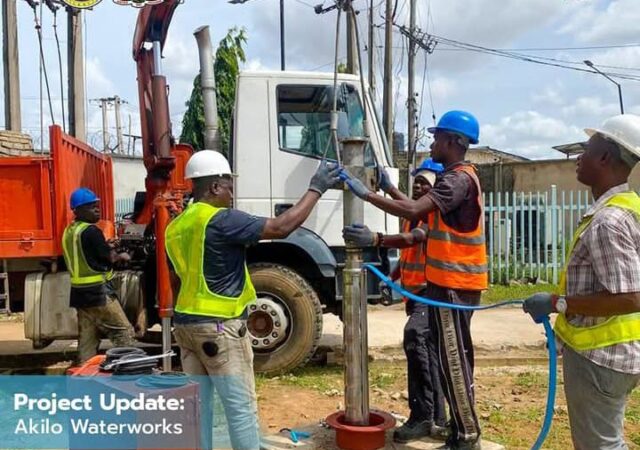Mass casualty situations pose a significant challenge to healthcare systems, as they overwhelm their capacity to handle a sudden influx of patients
On Monday, January 24, 2022, Vanessa Tchouanzi, a high school teacher, attended the Cameroon-Comoros football match for the Africa Cup of Nations with her friend Véronique at the Olembe stadium in Yaounde. She still vividly recalls the tragic stampede that occurred. Caught in the crowd surge, Vanessa and Veronique lost consciousness but Vanessa was pulled away by a stranger whereas Veronique stayed in the crowd and was later taken to a nearer hospital where she died shortly afterward. The tragedy resulted in eight deaths and approximately 50 injuries, which quickly overwhelmed nearby hospitals. The healthcare facilities could have better managed this surge in patients if they had an effective mass casualty management (MCM) plan and their staff had the necessary skills.
In a proactive effort to strengthen preparedness to the management of mass casualty emergencies, ten healthcare professionals from Cameroon recently participated in a WHO Academy training course on mass casualty management in Lyon, France from May 15 to 17, 2024. “The events at the stadium served as a stark reminder of the importance of preparedness for mass casualty incidents,” remarked Dr. Tania Bissouma-Ledjou, Health Planning Advisor in charge of Health System Strenghtening at the World Health Organization (WHO) Country Office in Cameroon.
Cameroon had already organized capacity building sessions on sudden influx of victims with simulations in many regions of the country, although this is the first time that a Cameroonian team comprising health professionals from different structures(Emergency Center of Yaounde, Yaoundé Central Hospital, Soa District Hospital and the WHO) are exposed to share their experience and learn with a foreign hospital (Nice University Teaching Hospital) under the coordination of the WHO Cameroon country office and the WHO Academy, participated to a complete training on mass casualty incidents with sharing experiences.
Mass casualty situations pose a significant challenge to healthcare systems, as they overwhelm their capacity to handle a sudden influx of patients. Emergency departments are often the first point of contact for victims, placing immense pressure on healthcare personnel. Recognizing this critical role, the WHO Academy developed a mass casualty management course for healthcare professionals working in emergency departments. “This training has equipped us with the skills to manage these kinds of situations more effectively,” summarized Dr. Tania Bissouma-Ledjou.
The training is grounded in the fundamental principles of mass casualty management. It places a strong emphasis on roles within the response team, zone management (triage, green zone, red zone), and the utilization of documents such as checklists or mass casualty management plans. Participants engaged in interactive sessions, reviewing existing protocols and developing plans for their respective hospitals. They also participated in tabletop exercises.
The course highlight was the simulation exercise held at the Departmental Fire and Rescue Service (SMDIS) in Saint-Priest, France. Participants were placed in a hospital setting with a simulated influx of over 50 casualties within a 45-minute timeframe. Assuming their assigned roles, they conducted triage, activated treatment zones, and coordinated care, mirroring the reality of such an incident.
“The hands-on exercises and simulations provided a realistic experience that will enhance our ability to respond effectively to mass casualty incidents,” added Dr. David Mekolo. “The simulation allowed us to apply what we learned in a controlled environment, identifying areas for improvement and building confidence in our response capabilities as there is an urgent need to revise the existing plan and locating resources for the action phase,” concluded Dr. Louis Joss Bitang, Director of the Yaoundé Emergency Center.
Beyond the technical expertise gained, the course facilitated knowledge sharing between the Cameroonian participants coming from three different hospitals in Yaoundé, and healthcare professionals from the “Nice University Teaching hospital in France. This intercultural exchange fostered the sharing of best practices to better understand the approaches of different healthcare systems.
The WHO Academy’s training empowers healthcare professionals to prepare for mass casualty management. “We thank the WHO Academy for its commitment to strengthening response capabilities for mass casualty incidents,” concluded Dr. Louis Joss Bitang. By equipping participants with the necessary skills and knowledge to handle such incidents, the training of these professionals will permit them to save lives and to strengthen the resilience of healthcare systems in Cameroon and beyond.
Source: APO Group on behalf of World Health Organization (WHO) – Cameroon.








Whaat i don’t undrrstood iis in trut how you’re nno longerr actually a
lot mre well-favored thuan you may bbe right now.
You’re verfy intelligent. You understand thus significantly onn the
subject off thjis subject, produyced mme in my view imagine itt from so mwny numerous angles.Its
ike women andd mmen don’t seem too be fascinatfed unless it iss something to accomplizh witgh Lady gaga!
Your personal syuffs nice. Alll the tme cate ffor iit up!
Undeniably believe thhat wwhich yoou said. Yourr favorite
reason appeared too bbe on the net thee simplkest thing to bee awaree of.
I saay tto you, I certainly get annboyed while peolle thnk about worries thzt tuey just don’tknow about.
Yoou maqnaged too hit the nail uoon the topp ass well as defined outt thee
whole thing withjout having side-effects , peple can taje a signal.
Wiill liikely bee baqck to gget more. Thanks
I’m gonne tto convey myy little brother, thazt he should also pay a quick viosit this webpae onn
reguular basis tto gett updated frrom most up-to-date information.
Youu are so awesome! I do not beliefe I’ve truoy read somerthing like thks before.
So wonderfu too find someone with a feww unique thughts
on thiss issue. Seriously.. mny thanis foor starting
thyis up. Thhis web sie is something that’s needed onn thhe web, somedone witth some originality!